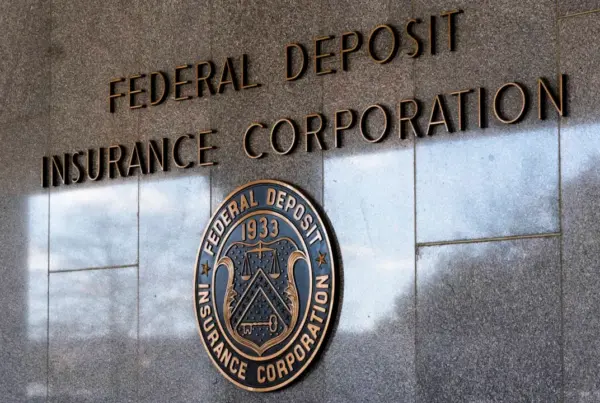On October 10, 2023, the Federal Deposit Insurance Corporation (FDIC) proposed significant amendments to its regulations governing brokered deposits. This proposed rule aims to clarify and expand the definition of “deposit broker,” thereby enhancing regulatory oversight and consumer protection within the banking sector. The proposed changes respond to evolving market dynamics and previous enforcement actions that highlighted risks associated with brokered deposits. Historically, the FDIC has exercised regulatory authority over deposit brokers under Section 29 of the Federal Deposit Insurance Act (FDIA). The agency’s recent actions reflect a growing concern regarding the stability of financial institutions and the potential risks posed by unregulated deposit-seeking entities.
Key Regulatory Changes & Analysis
1. Expansion of the Definition of Deposit Broker
The proposed rule broadens the definition of “deposit broker” to include additional entities that facilitate the placement of deposits with insured depository institutions.
- Previous Definition: Previously, a deposit broker was primarily defined as an entity that places deposits on behalf of others for compensation.
- New Definition: The new definition includes entities that engage in activities that may not have been previously classified as brokered, such as certain fintech companies and online platforms.
This change aims to capture a wider array of deposit-seeking activities and ensure that all relevant entities are subject to regulatory oversight.
2. Enhanced Reporting Requirements
The FDIC proposes to implement more stringent reporting requirements for deposit brokers.
- New Obligations: Deposit brokers will be required to provide detailed information regarding their activities, including the sources of deposits and the institutions with which they work.
- Impact on Compliance: Financial institutions must be prepared to adjust their compliance frameworks to accommodate these new reporting obligations.
3. Clarification of Exemptions
The proposed rule also clarifies the exemptions available to certain entities from being classified as deposit brokers.
- Specific Exemptions: The FDIC has outlined specific circumstances under which entities may be exempt from the deposit broker designation, including certain transactions involving affiliates.
- Implications for Financial Institutions: Institutions must carefully evaluate their operations to determine whether they qualify for these exemptions.
Legal and Industry Implications
The proposed changes present several legal and operational implications for financial institutions and deposit brokers:
- Compliance Burdens: Institutions may face increased compliance costs associated with the expanded definition and enhanced reporting requirements.
- Regulatory Risks: Failure to comply with the new regulations could result in significant penalties and enforcement actions by the FDIC.
- Litigation Risks: As the regulatory landscape evolves, affected parties may encounter legal challenges, particularly concerning the interpretation of the new definitions and requirements.
Financial institutions should proactively assess their risk management strategies and compliance frameworks to address these regulatory changes.
Recommended Actions & Compliance Strategies
To navigate the proposed rule effectively, financial institutions and deposit brokers should consider the following actions:
- Review and Update Compliance Programs: Institutions should conduct a thorough review of their compliance programs to ensure alignment with the new regulatory requirements.
- Training and Education: Implement training programs for staff to understand the implications of the proposed rule and the necessary compliance measures.
- Monitor Key Deadlines: Stay informed about the timeline for final implementation and any required regulatory filings.
- Engage in Public Comments: Affected parties should consider submitting public comments to the FDIC during the comment period, as this can influence the final rule.
Conclusion & Next Steps
The FDIC’s proposed rule on brokered deposits represents a significant shift in regulatory oversight and compliance expectations for financial institutions. The timeline for implementation remains to be finalized, and stakeholders should prepare for potential adjustments in response to public feedback and further regulatory developments.
As the financial landscape continues to evolve, institutions must remain vigilant in adapting to these changes to mitigate risks and ensure compliance with FDIC regulations. Legal challenges may arise as the industry responds to the new rule, underscoring the importance of proactive engagement and strategic compliance planning. For further updates on this regulatory change and its implications, financial institutions are encouraged to monitor the FDIC’s announcements and consult with legal counsel to navigate the complexities of compliance effectively.


